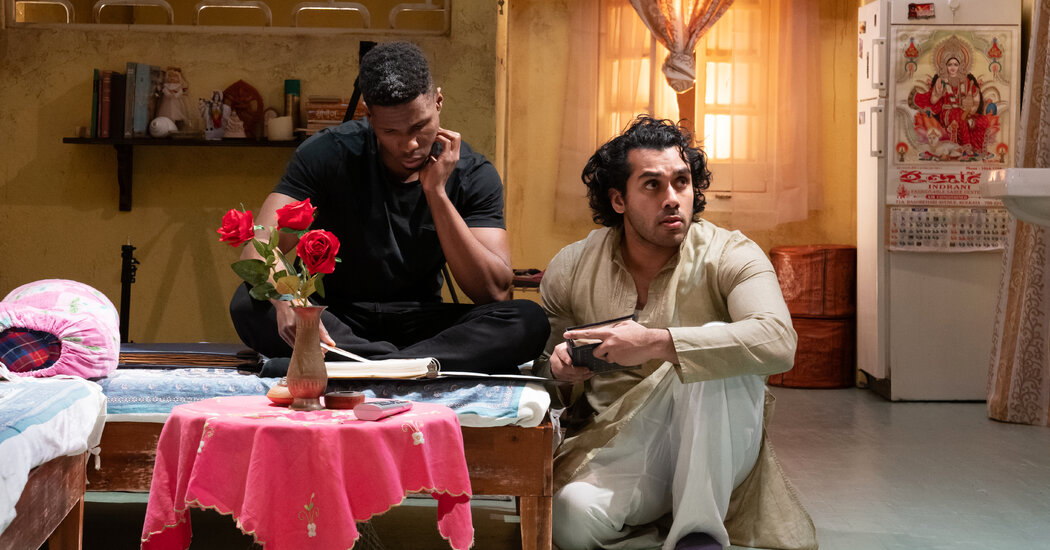Along with his non-Bangla-speaking cinematographer boyfriend, Raheem (Jakeem Dante Powell), Choton hopes to interview queer locals found on the hookup app Grindr. To what end, exactly, is uncertain, but it does allow Chowdhury to explore the difficulties of mixing business, pleasure and personal experience in the precarious quest to analyze subcultures defined by their marginalization. Their own relationship dynamic is called into question as Choton and Raheem set up a joint Grindr account, and Haque and Powell navigate these burdensome complexities with touching humanity and intelligence.
Their study also provides an excuse for a scene-stealing interview subject to come into the picture, played by the transgender activist Tashnuva Anan with a liveliness and self-assurance made for public adoration. Anan’s character, Shou, identifies as kothi, a native Indian gender similar to an effeminate man and, through Shou, Choton confronts his feeling of alienation from his compatriots’ queer scene.
Apart from a later foray into a nearby river, he does this from his late grandfather’s house, now kept by his aunt (Gargi Mukherjee), her online billiards-addicted husband (Debashis Roy Chowdhury) and their housekeeper (Golam Sarwar Harun). With their colorful side stories and performances, these three build out a world unconnected to the young couple’s mission, which is also thrown off-balance through the discovery of an undeveloped film reel inside the deceased patriarch’s camera.
This abundance of plot (is it too late to mention Shou’s street-smart friend, played by NaFis?) should come closer to overwhelming the production, but Chowdhury’s cinematic direction — aided by title credits screened onstage by Johnny Moreno (who also turns the space into a serene riverbank), Barbara Samuels’s transitional lighting and Tei Blow’s inventive sound design — keep things steadily afloat. And the sunny one-room set, by dots, a scenic-design collective, is ravishing in its simplicity and use of soft canary yellow (and burning incense).
This expansive production casts a wide net, yes, but one kept from being spread too thin by a uniformly excellent cast and the deliberate pacing of a confident playwright. Chowdhury also accomplishes the not-insignificant task of successfully writing a bilingual play, with some of the Bangla dialogue translated via supertitles and some left to nonspeakers’ imagination.


